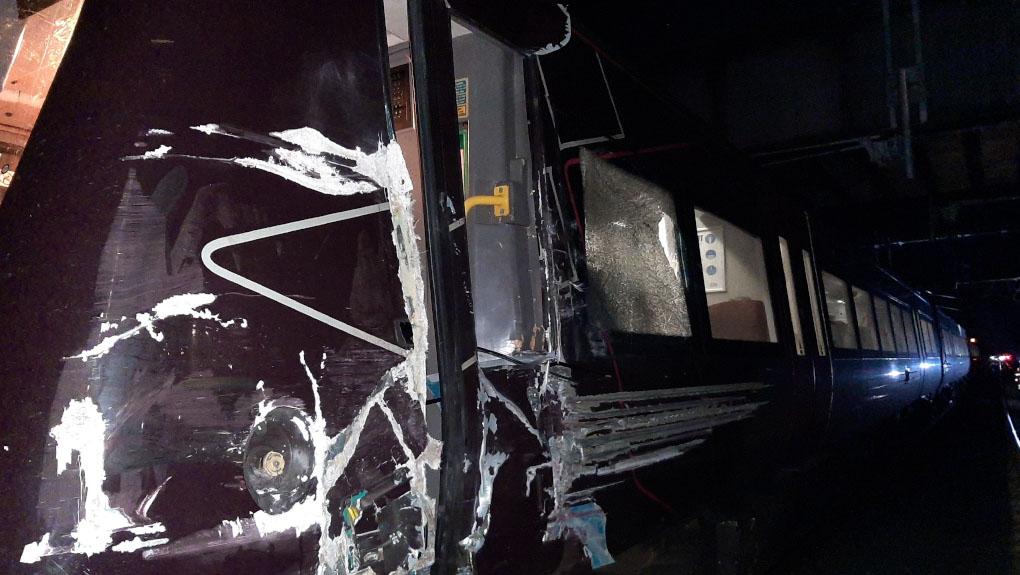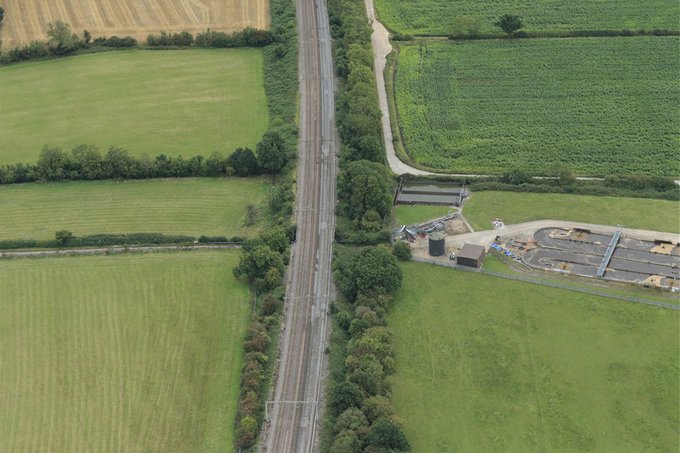Colin Wheeler
As we enter 2023, my aspiration for this year is to see an end to industrial disputes and for our railways to move forward and lead the changes we all need to see, by reducing greenhouse gas emissions resulting from the transporting of goods and people.
The planned establishment of Great British Railways is a continuing saga. Any new organisation needs to quickly build a team spirit and commitment. To a surprising degree, many of the strengths and the commitment of rail staff with British Rail was carried over into Railtrack and its successor Network Rail. Significantly, the Zones created share similarities with the British Rail organisation I worked in. We all have high expectations for the creation of GBR but, when it comes into being, winning over the hearts and minds of all who work on our railways will be no easy task.
Past practices
When I started work on the railway as a new graduate in civil engineering, I was initially drafted into a few months of manual track work, which came as a surprise. The buzz words were ‘mechanised maintenance’ but only the smallest and most basic tamping machines were in use. Most of the weekday work was done manually with lookouts whilst trains were running.
After a couple of weeks or so, my ganger told me that we had a day off on the following Thursday. I asked why and was told it was the usual practice to allow his fellow track workers to attend the funeral for a work colleague who had been knocked down by a train and killed. From the matter-of-fact tone of his answer, it was clear that there was a degree of acceptance that such accidents were inevitable.

From the sub-ganger I learnt the way in which what was described as ‘the lie sheet’ needed to be filled in detailing what work had been done. This was so that trained work study technical staff could calculate bonus payments based on allowed minutes for tasks that were added to the weekly pay. Since I was not a listed gang member, any useful work I did enhanced the bonus payments of the gang members. In some ways Human Factors, I suggest is a development from work study principles.
Freight train derailments
Whilst hoping that the workload of the Rail Accident Investigation Branch (RAIB) will progressively reduce, I have seen little evidence of this happening. Currently, as I write in late-January 2023, 13 accidents and incidents, are still listed as “investigating” on the RAIB website and two more are still marked as “consulting”.
The oldest in the “investigating” list relates to a freight train derailment accident resulting in track damage between Pancoed and Llanharan. The accident occurred on 6 March 2021. An interim report about the collision between two passenger trains at Salisbury Tunnel was published on 21 February last year and updated on 31 October.
On Christmas Eve 2021, a freight train derailment occurred at London Gateway. The investigation is still listed as “investigating”. It seems right to be careful and carry out thorough investigations as necessary, and to consult with those involved in accidents, but I am left wondering whether legal processes have caused such lengthy delays and if is this good for the industry. Surely, a two-year delay is far too long? Could anyone justify such a delay if a second accident happened in the meantime which would, in all probability, have been avoided if the earlier investigation and recommendations had already been concluded?
Track workers near miss
According to an RAIB news report, on 15 November last year there was a near miss reported involving track workers at Orton Sewer Bulkington. The report refers to a train speed of 125mph and the use of a “safe system of work being used to keep the workers away from the open line”.

Signal passed at danger!
On 26 October, at South Wingfield between Derby and Chesterfield, a train passed successive signals each showing green proceed aspects, but then unexpectedly encountered a signal showing a red aspect. It was travelling at 110mph and unsurprisingly passed the signal by 760 metres at 07:02. The signal passed at red had been disconnected and reconnected the previous night as part of planned track maintenance work. At 07:07 a following passenger train left Belper, its driver having been instructed by the signaller to proceed at reduced speed. This second train reached the signal that had been passed at danger at 07:19. By that time it was showing a yellow caution aspect.
After passing it at just 20mph the driver of the second train saw the tail lights of the earlier train which was now stationary. He stopped his train leaving the trains some 75 yards apart but within the same signal section. The RAIB news story says that the signal passed at danger had been disconnected and later reconnected the previous night as part of the works. It adds that the signal, “had been placed back into service with a fault resulting in a wrong side failure with the signals red and yellow aspects displayed incorrectly.”
After a preliminary examination RAIB decided to publish a Safety Digest. However, it has reconsidered and “having assessed further evidence that has come to light since this decision” has now decided to carry out an investigation.” This will seek to identify the sequence of events that led to the wrong side failure of the signal. It will include “consideration of the roles, responsibilities and competence management of the staff involved, the factors that influenced their actions and the testing processes followed for the planned overnight work to the signalling equipment.” It will also consider underlying management factors, including the rail industry response to RAIB’s recommendations made in its report 15/2017 on Cardiff East Junction and 19/2018 on Waterloo.
Freight driver receives suspended sentence
On 23 January it was reported that a train driver who was working for DB Cargo on 23 March 2022 was sending and receiving phone messages whilst driving his locomotive. Reading a picture message on his mobile phone he ran into a siding buffer stop at Bromsgrove and his train derailed. It partially obstructed the adjacent main line. A passing Cross Country passenger train then struck his locomotive and considerable damage was caused to both the locomotive and the passenger train.
In court, the freight train driver was found guilty of breaching Section 7a of the Health and Safety at Work Act 1974. He was sentenced to eight months imprisonment suspended for 18 months. The prosecution was brought by the ORR.
Judge Cartwright said: “luckily there were only six people on board, the guard, driver and four passengers” He added that if the locomotive had derailed a little further over there would have been a head on collision and he would have been killed.”
Improvement Notices issued by the ORR last year
Blackpool
On 5 December 2022, the Office for Rail and Road (ORR) issued an Improvement Notice on Blackpool Transport Services requiring its compliance by 30 January this year. The notice states that they had not carried out “suitable and sufficient assessments of risk”, referring to the use of substances hazardous to health.

Greater Manchester
Earlier, on 24 October 2022, the ORR issued an improvement notice on Transport for Greater Manchester Ltd specifying compliance by 30 April 2024. This notice states that it had failed to demonstrate “effective measures to prevent trams derailing and/or overturning due to overspeed at high-risk locations including tight radius curves so far as it is reasonably practicable”.
Transport for Greater Manchester was also issued with another notice on 24 October last year. This one also has a compliance date of 30 April 2024. It states that it “failed to demonstrate implementing effective measures to prevent trams derailing and/or overturning due to driver inattentiveness, so far as is reasonably practicable”.
Channel Tunnel
The Channel Tunnel Group Ltd and France Marche SA were, on 10 August last year, also issued with improvement notices requiring them to ensure “effective arrangements to ensure the review of risk assessments”.
Rail Safety Summit
I look forward to seeing you at this year’s Rail Safety Summit. I am pleased to say that, for the first time at the event, we have the Chief Scientific Adviser to the Department for Transport as a speaker. Professor Sarah Sharples is also the Professor of Human Factors in the Faculty of Engineering at Nottingham University. The discipline of Human Factors covers ergonomics, and both psychological and physiological principles as they relate to engineering design, processes, and systems. The motivation is to improve the interactions between people and engineering systems and improve safety by so doing. Professor Sharples will certainly add a new dimension to the day.

